Current Affairs
Standard Bank’s error sparks heated exchange between EFF and AfriForum
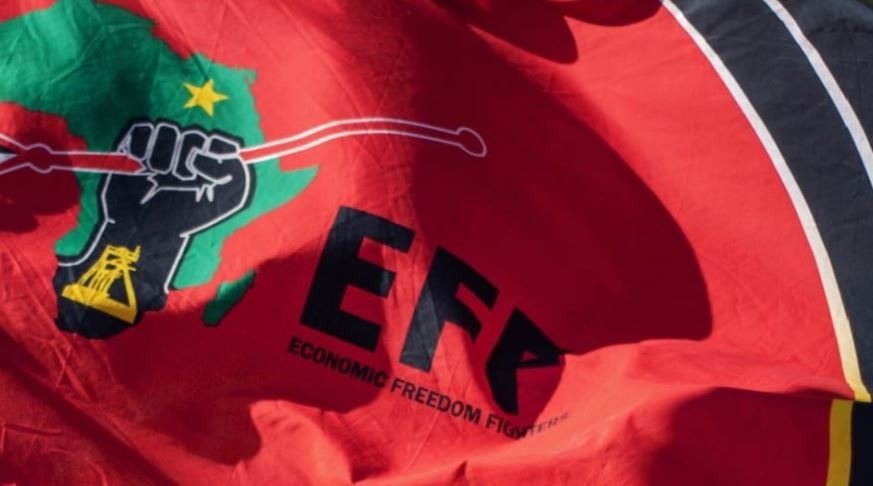
In a recent incident, Standard Bank found itself at the center of a controversy as it mistakenly labeled two proof of payment documents sent by the Economic Freedom Fighters (EFF) to AfriForum as “fraudulent.” The bank later clarified that this labeling was due to a “misunderstanding” and did not directly implicate its Fraud Centre as the source of the error.
The source of the misunderstanding appears to have stemmed from Standard Bank’s business unit, which had been using outdated templates for generating pay alerts for the past eight years. These templates featured a letterhead listing directors who had resigned in 2015, along with an outdated company logo in the top left corner. Standard Bank’s apology admitted to the use of these outdated templates in “isolated incidents,” a factor that likely triggered suspicion within the bank’s Fraud Centre.
However, an investigation by Scorpio suggests that the use of these outdated templates may not have been as isolated as Standard Bank initially claimed.
This incident raises concerns, particularly as South Africa seeks to demonstrate its commitment to combating fraud, corruption, and money laundering to international bodies such as the Financial Action Task Force. The credibility of banks and law enforcement agencies in South Africa is crucial in this regard.
The Origins of the Dispute
The incident began when Ian Levitt Attorneys, the legal firm representing the EFF, sent two proof of payment notifications to Hurter Spies Inc, AfriForum’s lawyers in Pretoria on November 6th. The EFF owed AfriForum R316,000 in legal costs following a land invasion case.
On the same day, AfriForum’s attorney Daniël Eloff and CEO Kallie Kriel shared the proof of payment documents on social media. Observant individuals, including Khaya Sithole, a chartered accountant and radio host, noticed discrepancies in the list of Standard Bank directors printed at the bottom of the documents. Fred Phaswana, a former joint chair of Standard Bank, had left the bank in 2015, yet his name appeared on the list of directors in the documents provided by the EFF.
Further scrutiny revealed more potential signs of tampering, such as an outdated Standard Bank logo in the top left corner of each document. Additionally, historical proof of payment documents from the EFF dating back to 2020 raised similar concerns.
Confirmation Requested
In response to these concerns, Hurter Spies Inc. reached out to Standard Bank for confirmation of the legitimacy of the proof of payment documents. On the morning of November 9th, Standard Bank’s Fraud Centre promptly responded with a terse email stating, “The below are fraudulent.”
The incident has not only exposed Standard Bank to criticism but has also fueled a verbal exchange between the EFF and AfriForum, highlighting the need for vigilance and accuracy in handling financial matters, especially in a country working to combat financial crime.
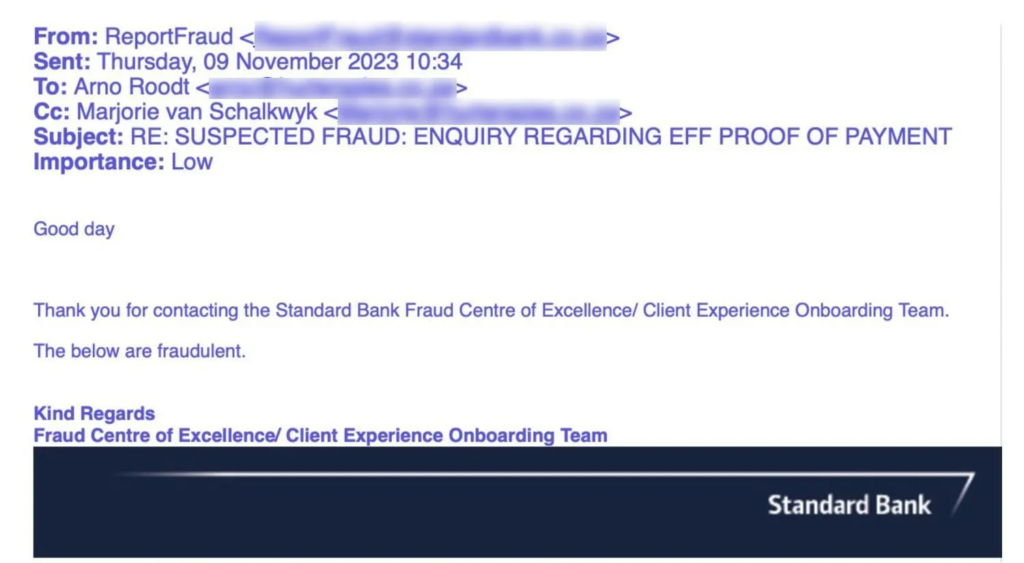
A recent email has shed light on a telephonic conversation between AfriForum’s attorneys at Hurter Spies Inc. and Standard Bank representatives, where the bank initially conveyed its “fraudulent” finding to the attorneys. Kallie Kriel, head of AfriForum, revealed this information to Scorpio.
Despite the bank’s claims of fraudulence, AfriForum’s bank account at Absa showed evidence of two payments totaling R316,579.89, with amounts of R163,441.39 and R153,138.50.
In response to this situation, AfriForum jumped to the conclusion that the Economic Freedom Fighters (EFF) had tampered with the proof of payment documents. They swiftly issued an online press release titled “Falsified Documents: AfriForum Exposes Dodgy EFF Payments.”
Upon investigation, conducted jointly by Scorpio and Jean le Roux from the Digital Forensic Research Lab, it became evident that the proof of payment documents provided by the EFF did indeed raise concerns. Suspicious metadata added to the skepticism, but the most significant red flag was the outdated list of directors and Standard Bank logo.
To verify their findings, this journalist generated a Standard Bank proof of payment from a private individual’s Standard Bank account. The document appeared correct, featuring the latest Standard Bank logo and an up-to-date list of directors.
As an additional control, Le Roux conducted an online search for a proof of payment document created by a Standard Bank business account with no affiliation to the EFF or AfriForum. This document, created in February 2022 and uploaded by the Knysna Municipality, resembled the EFF’s proof of payment document with an outdated logo and list of directors.
Le Roux speculated, “The likely situation is that Standard Bank used a different system to generate Business Online proof of payments and their non-commercial proof of payments. While the non-commercial proof of payments had their letterheads changed to reflect the new logo and board composition, this was not applied to the Business Online letterheads.”
EFF’s Swift Response
In response to AfriForum’s accusations, the EFF acted swiftly to defend its innocence. Within 24 hours of AfriForum’s allegations, EFF lawyer Ian Levitt was instructed to send a strongly-worded letter to the civil rights organization, demanding an apology. The letter also warned of legal action if an apology was not issued, resulting in a predictable exchange of aggrieved emails.
Notably, the EFF provided Scorpio with redacted versions of its Standard Bank statements, which included evidence of the payments made to AfriForum’s lawyers, further substantiating their side of the story.

Levitt subsequently forwarded emails that clearly indicated that Standard Bank’s system generated and dispatched proof of payment documents, also known as “pay alerts,” to an EFF inbox labeled as “statements.” Subsequently, these proof of payment documents were sent to EFF treasurer Omphile Maotwe, who then forwarded them to an attorney at Ian Levitt Attorneys.
These emails, in conjunction with bank statement excerpts from both the EFF and AfriForum, conclusively demonstrated that the EFF had indeed made payments to AfriForum from its primary Standard Bank account.
This incident triggered significant commotion within Standard Bank, leading to a series of meetings involving representatives from the EFF and AfriForum throughout the latter part of last week and over the weekend. Shortly before midnight on Friday, the bank issued an apology to the EFF, followed by another apology to AfriForum on Saturday afternoon.
Notably, the Standard Bank Fraud Centre, a critical component of the bank’s operations, was conspicuously absent from both of these apologies.
Presented below is Standard Bank’s comprehensive response to the situation.
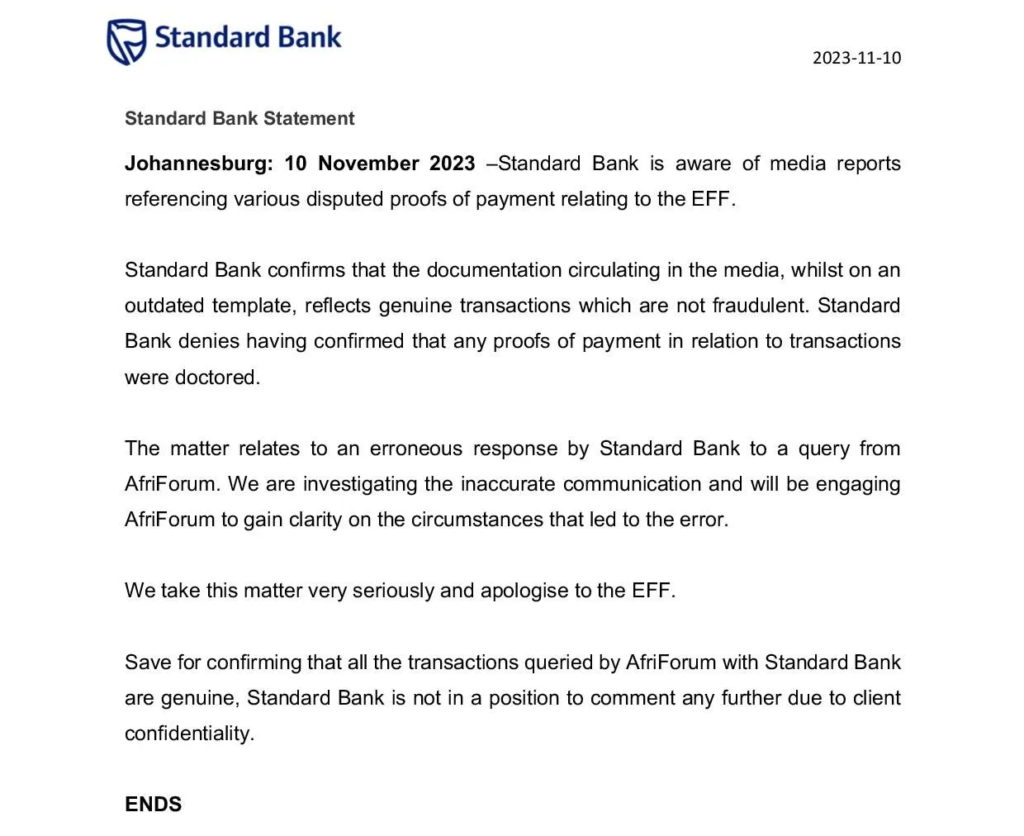

In his second communication to AfriForum, Levitt conveyed that the EFF had issued a demand for an apology from AfriForum and the legal firm Hurter Spies Inc by 1 pm on Monday, November 13th. Levitt categorically labeled the allegations made by the organization as “defamatory” and firmly refuted the applicability of the fair comment defense.
Levitt emphasized, “One of the key prerequisites for employing the fair comment defense is the factual accuracy of the basis upon which such commentary is founded.”
He cited a legal precedent from the EFF’s past, highlighting their unfavorable outcome in a defamation lawsuit brought against them by former minister Trevor Manuel. Levitt pointed out that the EFF had learned, from their own painful experience, that it is untenable to assert the justification of criticism when fundamental facts are erroneous and no effort was made to validate their accuracy.
AfriForum has since removed the contentious press release, accusing the EFF of criminality, from its website.
Kriel, in a conversation with Scorpio, expressed AfriForum’s contentment with Standard Bank’s apology, emphasizing, “It is crucial to clarify that we did not engage in falsehoods but relied on information from Standard Bank’s Fraud Centre.”
AfriForum firmly denied any allegations of defamation, asserting that they would contest any further legal action pursued by the EFF, as they believed the EFF’s prospects of success under the circumstances were limited.
Current Affairs
New survey points to coalition-led SA, but voter apathy a major factor
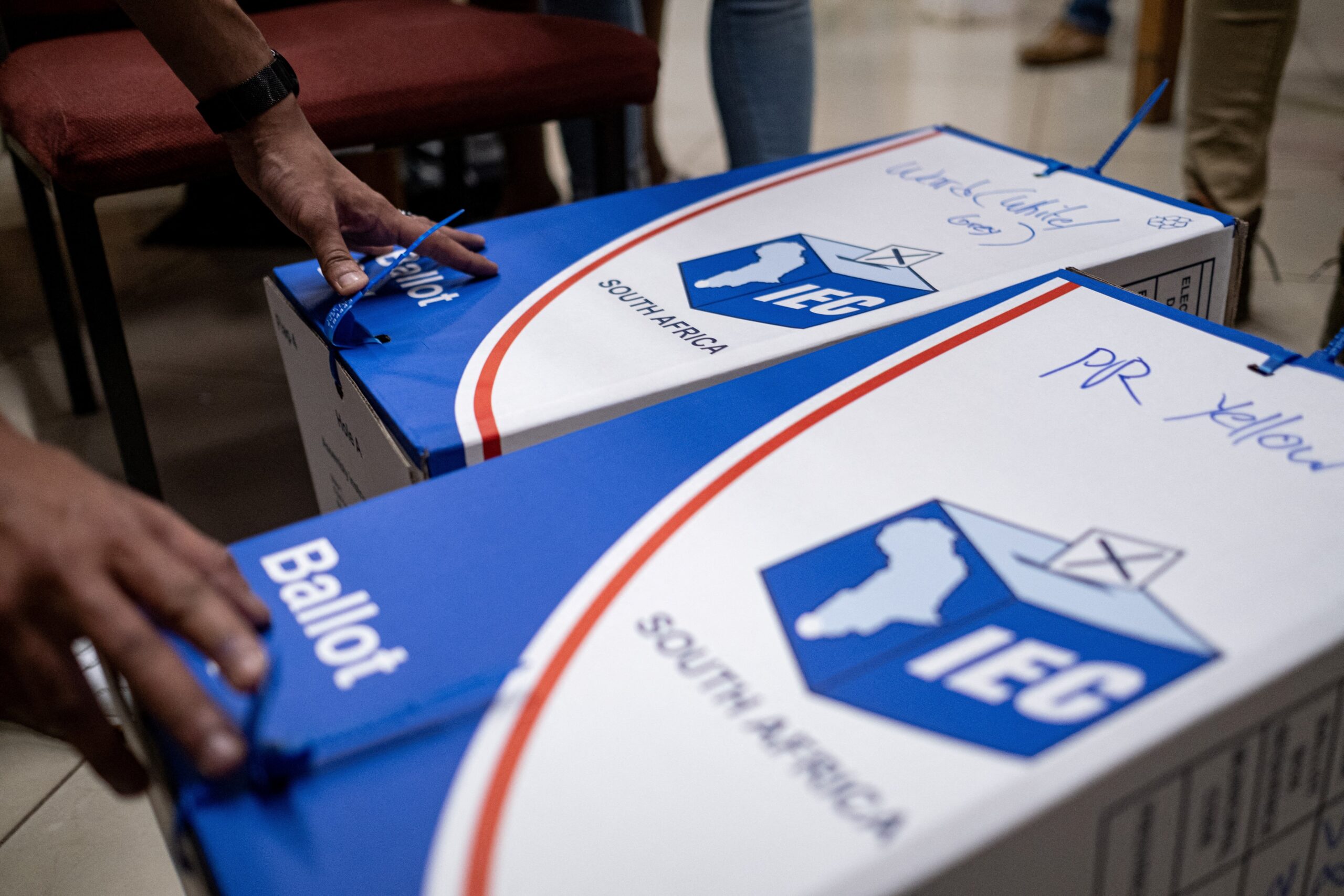
The results of an in-depth survey conducted by African Innovation Research SA (AIRSA) point to the country’s future being in the hands of coalitions and raise concerns about voter apathy, especially among the youth.
The initial sample comprised some 5 000 participants, of whom 46% confirmed they were either not interested in voting despite being registered or had not registered.
The majority of those surveyed by the independent research company based in Cape Town were in the 18–35 age group, a generation who are increasingly disillusioned with how the country is run.
The remaining 2 700 participants, who were interviewed from across a broad section of South Africa’s nine provinces, indicated that support for the ruling ANC is in decline, dipping below the 50% mark to 43% overall.
The ANC’s strongholds remain the Eastern Cape (61% of those surveyed), 58% in the Free State and 65% in Limpopo, where its challenger is the EFF at 23.7%.
In the country’s fourth-largest economy, Mpumalanga, the ANC leads with 52.3%, the EFF at 21.7% and the DA at 19.7%.
In the North West province, it’s a similar pattern, albeit reversed, with the ANC at 48.3%, the DA at 27.7% and the EFF at 20.0%, while in the Northern Cape, the ANC leads with 47.3%, followed by the DA with 24.3% and the EFF with 15.7%.
The country’s economic engine, Gauteng, is a key player in the power dynamics. Here, the ANC garnered 38.7%, but the EFF is growing its base to 19.3%, challenging the DA’s 20% of the province’s voters.
In the Western Cape, as expected, the DA holds onto a leading margin at 46.0%, with the ANC and EFF at 22.3% and 8.7% respectively. Gayton McKenzie’s Patriotic Alliance (PA) also features in the country’s southernmost province, making a notable showing at 5%.
While former president Jacob Zuma may have been barred from becoming a member of Parliament in the Constitutional Court this week, the new uMkhonto weSizwe Party (MKP) will play a pivotal role in KwaZulu-Natal. Results of the AIRSA survey show that while the ANC currently remains ahead with 28.7%, it’s an even race in the province with similar support for the IFP at 26.0% and MKP at 26.7%.
As experience dictates, the smaller parties will begin a series of bargaining tactics as to whose deck they end up in and call the shots.
At collectively accounting for around 20% of the upcoming vote, these potential coalition partners carry significant influence.
AIRSA also noted that voting in this sector is personality-driven as opposed to ideology.
The fragmentation of South Africa’s political landscape could also contribute to increasing dissatisfaction and disillusionment, particularly when linked to the country’s youth and increasing unemployment.
© IOL (Cape Times)
Current Affairs
Diddy assault video cements fall of hip-hop icon
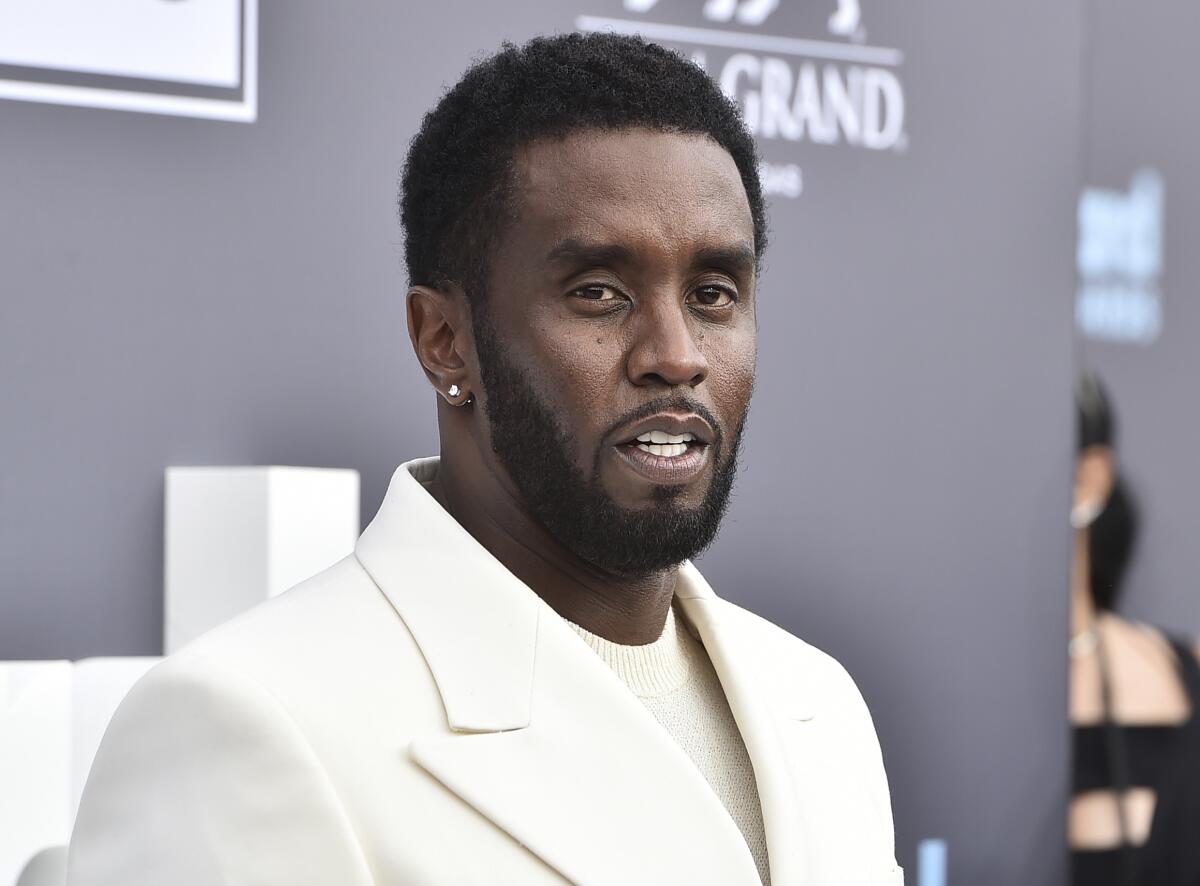
CCTV video footage confirmed what many people in the music industry knew was brewing: a moment of reckoning for one of the most influential hip-hop artists in history.
The clips of Sean “Diddy” Combs kicking his former girlfriend Cassie Ventura – as she lay motionless on the floor – cemented his downfall, despite his apology after the leak.
“I don’t see a path for him to come back from this,” said Amy DuBois Barnett, the former editor-in-chief of Ebony magazine, who has written about hip-hop culture.
Combs’ reputation in the industry had been “chequered for some time,” added Barnett. “Many people were aware of his pretty unbridled temper.”
Combs – formerly known as P Diddy, Puff Daddy or Puffy – is one of the best-selling and most acclaimed artists of all time, with three Grammy Awards and millions of record sales to his name.
For years, nothing really affected his rise to icon status as an artist, producer and businessman. There were negative stories in the industry, said Barnett, but much of it stayed out of the public eye.
Last November, Ms Ventura settled a lawsuit against Combs – in which she accused him of rape and sexual trafficking – for an undisclosed sum. But Combs’ lawyer said the settlement was “in no way an admission of wrongdoing”.
Celebrities continued to voice support for him, but that ended with the CCTV video obtained by CNN and published last week.
The assault shown in the footage is brutal. After kicking Ms Ventura like a football, Combs, wearing just a towel, is seen dragging her across the floor.
The video appears to be a compilation of surveillance footage angles dated 5 March 2016, which CNN said was filmed at the InterContinental Hotel in Century City, Los Angeles. In her lawsuit, Ms Ventura had described a March 2016 incident at that hotel, in which Combs allegedly attacked her.
A string of other lawsuits have since been brought against Combs for abuse, sexual misconduct and rape. The latest was filed on Tuesday by Crystal McKinney, a former model and winner of MTV’s 1998 Model Mission competition.
She claimed she was “drugged and sexually assaulted” in 2003 by Combs following a fashion event in New York. BBC News has contacted Diddy’s representatives for comment on the claims.
When the first lawsuits were filed, the rapper called the accusations “sickening” and said the alleged victims were looking for “a quick pay day”.
But the video of the assault on Ms Ventura undermined those denials.
Combs was silent for two days after its release, before posting an apology to Instagram, admitting it was him in the tape and calling his actions “inexcusable”.
“I was disgusted then when I did it,” he said, “and I’m disgusted now.”
“I went and I sought out professional help,” he continued. “I got into going to therapy, going to rehab. I had to ask God for his mercy and grace. I’m so sorry.”
Combs did not mention Cassie Ventura in his apology, and her lawyers hit back, saying: “Combs’ recent statement is more about himself than the many people he has hurt.”
The apology was “too little too late,” said Camron Dowlatshahi, an entertainment lawyer in Los Angeles. “It shows the short-sightedness of Diddy, thinking he’s not going to be held accountable and that he has enough money to take care of everything.
Barnett, who has written about misogyny in the rap industry, described the statement as “the most ill-advised apology ever”. She suggested it was from the “classic ‘famous man’ playbook: deny, deny, deny. Get caught. Apologise, then talk about going to therapy.”
“No-one’s taking it seriously, particularly because he previously accused Cassie and others of being gold-diggers. That really angered a lot of people in the music industry.”
In April, news helicopters on both the US east and west coasts filmed police raids on mansions linked to the rapper. They were part of an ongoing criminal investigation by law enforcement into sex trafficking.
The man who was idolised as a hip-hop legend has been lying low since then.
Family pictures with his daughters posted to Combs’ Instagram account are in stark contrast to the images of him carrying out a violent assault.
The Los Angeles District Attorney’s Office said on Friday that it would not be able to bring charges due to the statute of limitations for assault. So where does the CCTV video, and the ongoing investigation, leave his career?
In his music, Diddy has often relied on collaborations with other A-list stars. His last album featured Mary J Blige, The Weekend, 21 Savage, and John Legend. He is extremely unlikely to be able to recreate such productions now.
But whether there will be an effect on his vast number of listeners is less clear. Fitness company Peloton has banned his music from its workout playlists already, according to TMZ, but other companies are yet to comment.
R Kelly continues to get millions of monthly listeners on Spotify, despite convictions for child sexual abuse.
Meanwhile, Kanye West experienced a peak in his monthly listeners last year, despite being dropped by brands for expressing antisemitic views.
Those who passed by Diddy’s star on the Hollywood Walk of Fame this week reflected on what the video meant to the rapper’s fans.
“It’s career-ending. I don’t know how he’s going to come back from this,” said Mar Anthony, a Los Angeles local. “I was a fan when I was a kid, listening to Every Breath You Take (I’ll Be Missing You). But what he did and the music, they’re two different things.
“It’s the same thing with Michael Jackson,” he said, nodding towards another Walk of Fame star that lies not far away – in an apparent reference to allegations of child abuse made against that star.
Diddy “definitely deserves what is coming to him”, said Prince Laurenz Hamlin, who was visiting LA. “But he still has built a legacy in the music industry. I think people will have to separate the art from the artist.”
One woman, after snapping a photo of Combs’ star, simply muttered “predator” as she walked away.
It is unclear who is currently advising Sean Combs. The law firm that previously issued denials on his behalf has said it no longer represents him.
Despite the civil lawsuits there have been no criminal charges filed against him. But the ongoing police investigation will no doubt be weighing heavily on the rapper.
“The Department of Homeland Security was involved [in the raids],” said Mr Dowlatshahi. “Just that fact alone shows the severity of what’s going on here.”
© BBC News
Current Affairs
Iran’s supreme leader leads prayers at Raisi funeral
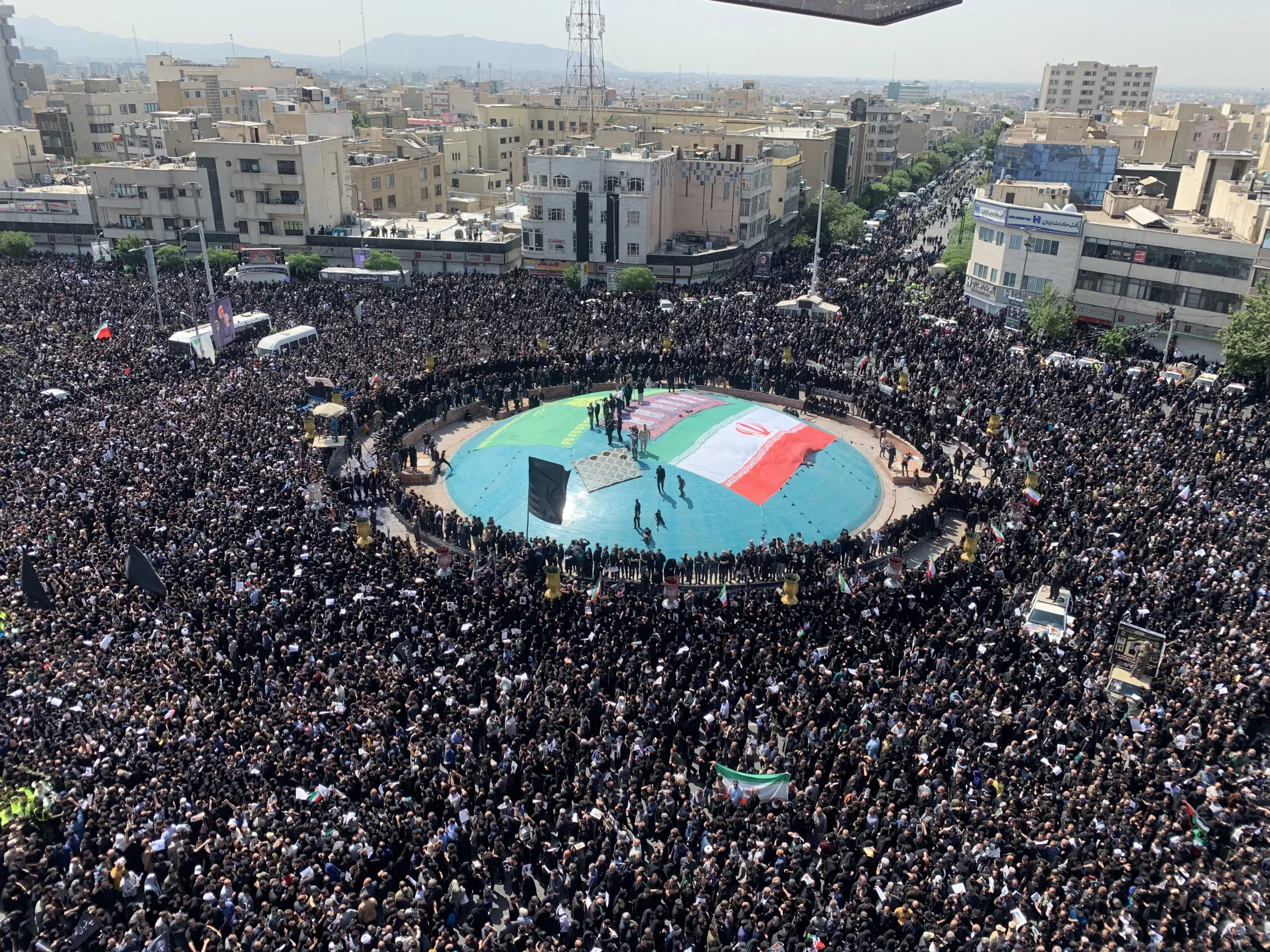
Iran’s supreme leader has presided over a funeral for the country’s late president, foreign minister and others killed in a helicopter crash on Sunday.
Ayatollah Ali Khamenei led prayers at Tehran University, where caskets carrying the dead were draped in Iranian flags.
President Ebrahim Raisi died alongside Foreign Minister Hossein Amir-Abdollahian and six others in a helicopter crash near the border with Azerbaijan.
Authorities had warned against demonstrations against the funeral procession and insults posted online.
“Oh Allah, we didn’t see anything but good from him,” Ayatollah Khamenei said in the standard prayer for the dead in Arabic.
Iran’s acting president, Mohammad Mokhber, stood nearby and openly wept during the service.
People then carried the coffins out on their shoulders, with chants of “Death to America” heard outside.
They loaded them onto a trailer for a procession through downtown Tehran to Azadi Square, where Raisi gave speeches in the past.
In attendance were top leaders of Iran’s paramilitary Revolutionary Guard, one of the country’s major power centres.
Also on hand was Ismail Haniyeh of Hamas, the militant group that Iran has armed and supported during the ongoing Israel-Hamas war.
Haniyeh is widely considered Hamas’s overall leader and has been a prominent member of the movement since 1980. The US Department of State designated him a terrorist in 2018.
“I come in the name of the Palestinian people, in the name of the resistance factions of Gaza…to express our condolences,” Haniyeh said.
He also described meeting Raisi in Tehran during Ramadan, the holy Muslim fasting month.
He said he heard the president say that “the Palestinian issue” remains the key one of the Muslim world, which “must fulfil their obligations to the Palestinians to liberate their land”.
He also claimed that Raisi called Hamas’ October 7 attack in Israel, which saw 1,200 people killed and 250 others taken hostage, an “earthquake in the heart of the Zionist entity”.
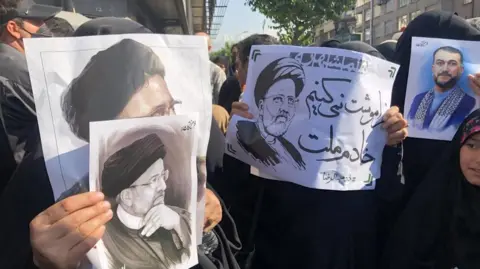
Also expected to attend services in Tehran were Pakistan’s Prime Minister Shehbaz Sharif and a delegation from the Taliban of Afghanistan, which included their Foreign Minister Amir Khan Mutaqqi.
Iran’s theocracy declared five days of mourning over Sunday’s crash, encouraging people to attend the public mourning sessions.
Typically, government employees and schoolchildren attend such events en masse, while others take part out of patriotism, curiosity or to witness historic events.
For Iran’s Shiite theocracy, mass demonstrations have been crucial to demonstrating the legitimacy of their leadership since millions thronged the streets of Tehran to welcome Grand Ayatollah Ruhollah Khomeini in 1979 during the Islamic Revolution, and also attended his funeral 10 years later.
An estimated one million turned out in 2020 for processions for the late Revolutionary Guard General Qasem Soleimani, who was killed in a US drone strike in Baghdad.
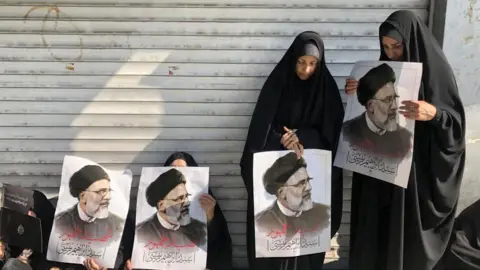
Across the capital, large banners were raised hailing Raisi as “the martyr of service”, while others bade “farewell to the servant of the disadvantaged”.
Some residents in Tehran received texts urging them to attend Wednesday’s ceremonies, the AFP news agency reported.
Footage carried by state TV showed streets filled with mourners, many of whom were carrying pictures of Raisi or the Iranian flag.
Funeral rites for the men began on Tuesday in the city of Tabriz and the Shiite clerical centre of Qom, where thousands of mourners attended ceremonies.
After Wednesday’s procession in the capital, Raisi’s remains will be moved to South Khorasan province, before being transferred to his home city of Mashhad in the northeast.
He will then be buried on Thursday evening in the city after funeral rites at the Imam Reza shrine.
Raisi, a hardline cleric, was a highly divisive figure in Iran. In the 1980s, he oversaw the execution of scores of opposition activists while working as a prosecutor.
He unleashed a brutal crackdown against demonstrators angered by the killing of 22-year-old Mahsa Amini in 2022. She died three days after she was detained by morality police in the capital for allegedly violating Iran’s strict rules requiring women to cover their hair with a hijab, or headscarf.
But his ultra-conservative outlook won favour with supporters of the regime, and Raisi was viewed as a possible successor to Ayatollah Khamenei.
© BBC News
Current Affairs
Shoprite to cooperate with police after Heidelberg man dies following alleged confinement in store cold room

Without divulging any details regarding the allegations over the death of a Gauteng man, retailer Shoprite stated that they would cooperate with the South African Police Services (SAPS).
IOL initially reported that a 13-year-old boy who was accused of stealing a chocolate, had been locked in a cold store room, where he subsequently died.
However police have clarified that the victim is 33-years-old.
Gauteng police spokesperson Colonel Noxolo Kweza said Ratanda police have opened a case of assault common as well as an inquest docket.
“This follows an alleged incident where two men accused of shoplifting were locked at the back of the store.
“One of the men, aged 33, during closing time complained of stomach aches, paramedics were called and he was declared dead on the scene.”
It is alleged a 33-year-old man was accused of stealing a bar of chocolate from a Shoprite store in Ratanda in Heidelberg, south of Gauteng.
When approached for comment, the supermarket chain extended its condolences to the victim’s family following their loss.
“The allegations are seen in an extremely serious light and the necessary steps will be taken pending the outcome of a full investigation.
“We cannot comment on the details of the incident as it is a police matter, and the local South African Police Service (SAPS) should be contacted for more information.
“We always give our full cooperation and provide all available information to the SAPS to assist their investigation.”
On Monday, angry community members gathered outside the store demanding answers.
© IOL






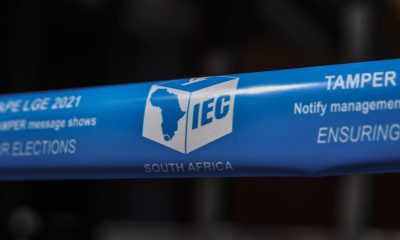











You must be logged in to post a comment Login